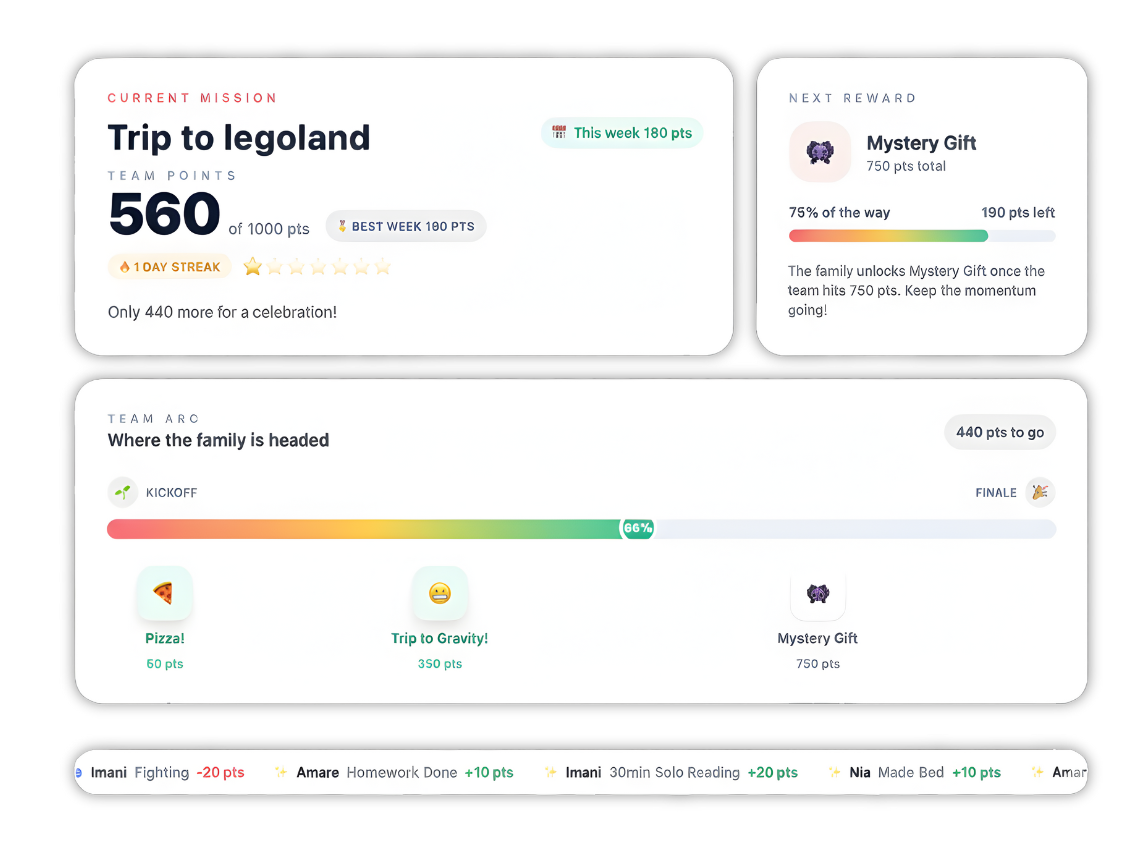The Art of Cooperation: Teaching Kids a Vital Skill for Life
Cooperation is a fundamental skill that shapes how children interact with others. It influences their ability to work in teams, resolve conflicts, and build meaningful relationships.
As parents, we play a major role in nurturing this skill from an early age. Here’s a guide to practical activities and strategies to help your child learn the value of cooperation through specific tasks tailored for various age groups.
1. Taking Turns
From the moment babies start exploring their environment, they can begin learning about taking turns. This can be as simple as playing games where you demonstrate an action and then invite your child to imitate it. For instance, drop a block into a bucket and encourage your little one to do the same.
For older kids, activities like rolling a ball back and forth or sharing toys can reinforce this concept. The key here is patience; it teaches them that sharing time and space is essential. Clearly communicate whose turn it is and ensure everyone has an equal opportunity to participate.
2. Explaining Rules
Even toddlers can grasp basic rules if explained simply. Use everyday situations to convey why certain behaviors are necessary. For example, when cooking, you might say, “Stand back from the stove because it’s hot,” helping them understand safety while respecting boundaries.
When explaining rules, clarity is vital. Keep your language straightforward so they can grasp the rationale behind the rules easily. This understanding promotes respect and cooperation among peers.
3. Problem-Solving Together
Teaching children how to tackle problems together is an empowering experience that enhances critical thinking skills. Start with simple scenarios; ask your child what they think is wrong and brainstorm solutions together.
For instance, if two siblings want the same toy, guide them through identifying the problem and coming up with solutions—perhaps taking turns or finding another toy to share. By facilitating this discussion without imposing your solutions, you encourage mutual agreement and enhance their communication skills.
4. Giving Choices
Toddlers thrive on choices; it gives them a sense of control over their environment. Offer simple yet meaningful options during daily routines: “Do you want peanut butter on toast or peanut butter with raisins?” This approach helps them feel empowered while still adhering to necessary guidelines.
However, ensure that the choices are realistic! Avoid offering false choices like “Do you want to take a nap?” when napping is non-negotiable.
5. Role-Playing Cooperation
Role-playing provides children with safe opportunities to practice cooperation in various contexts. Set up scenarios where they need to share toys or take turns during pretend play.
This method allows kids to experiment with cooperative skills in a controlled setting while receiving positive feedback from you as they navigate these interactions. Tailor role-playing exercises specifically around areas where your child may struggle—this adds relevance and helps them internalize lessons more effectively.
6. Modeling Cooperation
Kids are natural imitators; they learn best by watching those around them—especially their parents! Demonstrating cooperative behavior yourself is one of the most effective ways to teach this skill.
Show them how you take turns in conversations, ask for help politely, or invite others to join in activities. Your actions speak volumes more than words alone ever could; consistent modeling reinforces the importance of cooperation in everyday life.
7. Team-Based Games
Nothing says fun like team-based games! Engaging kids in activities requiring teamwork not only makes cooperation enjoyable but also teaches valuable social skills along the way.
Consider games like keeping a balloon afloat by tapping it back and forth or participating in collaborative challenges such as “Tangled Knots” where everyone holds hands and must untangle themselves without letting go. The laughter and camaraderie found in these games will create lasting memories while instilling teamwork at its core.
8. Sharing and Fair Play in Sports
As children grow older, sports become an excellent platform for teaching cooperation through shared goals and teamwork dynamics. Sports like soccer or swimming relays emphasize working together towards victory while highlighting fair play principles.
Celebrate each team member's contributions during these activities—recognizing individual efforts fosters group cohesion and encourages kids to support one another on their journey toward collective success.
9. Community Service
Getting involved in community service projects allows children to see firsthand how teamwork can create positive change within their environment. Whether it's cleaning up a local park or volunteering at food banks, these experiences develop empathy while instilling responsibility towards others through collaboration.
Before embarking on such projects, explain why their involvement matters—sharing insights about how teamwork impacts community goals fosters deeper connections between individual actions and collective outcomes.
10. Positive Reinforcement
Lastly, praising cooperative behavior reinforces its importance for all ages! Recognize specific efforts made by your child when they work well with others—statements like "Great job taking turns with your sister!" affirm that cooperation is valued within your family unit.
Being genuine in your praise encourages continued positive behavior while building self-esteem around cooperative efforts in future interactions!
Fostering cooperation isn't just about teaching kids how to share; it's about equipping them with essential life skills that will serve them throughout their lives—from childhood friendships all the way into adulthood workplaces filled with collaboration challenges ahead!
As parents, we can offer our children multiple opportunities for practicing these vital skills through engaging activities tailored specifically for their age groups while keeping things light-hearted along the way!
Encouraging cooperation doesn’t have to be daunting—it can be fun! So gather some supplies (toys, games), set aside time each week dedicated solely towards cooperative tasks together as a family unit…and watch those little seeds sprout into lifelong habits before your very eyes!
